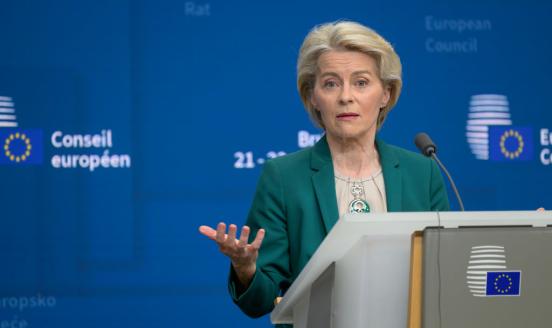Difficulties and opportunities in reallocating European Parliament seats after Brexit
The European Parliament must carefully consider the reallocation of seats after Brexit, allowing for a potential shift in political alignment and work

The European Parliament will soon recommend to the European Council a new distribution of parliamentary seats per Member State after Brexit. In the UK, 73 MEPs are elected; their seats in the Parliament can either be dropped or reallocated to other countries. This potential reallocation is hugely important for Europe – not only could it change political majorities in the European Parliament, it will also affect representativeness with regards to EU citizens in different Member States.
In itself the departure of the UK will already affect the proportions of political parties in the next European Parliament; there will be no UKIP, no Conservatives, nor any Labour representatives. As the Conservatives are not members of the European People's Party (EPP) group, but Labour is part of Socialists and Democrats (S&D), Brexit will tend to strengthen the EPP relative to S&D.
Hypothetically dropping the seats of all 73 British MEPs and applying the votes of the 2014 elections would strengthen the EPP, their current share of 28.9% rising to 32%. Meanwhile, S&D and European Conservatives and Reformists (ECR) would lose vote weight, but the Alliance of Liberals and Democrats for Europe (ALDE) would gain.
As seats get reallocated to different countries, the process will further strengthen and weaken different party groups – to the extent that majorities will be different across countries. For example, in the proposal to be voted by the Parliament on February 7th, France would gain seats. Depending on the majorities in France, this can affect majorities in the European Parliament.
But beyond these political shifts, which in any case occur with every election, the reallocation of seats also has implications for the degree of representativeness. While the European Parliament is the parliament representing EU citizens, some EU citizens count for more than others.
There are 72,400 Maltese citizens for each MEP from Malta, while there are more than 900,000 citizens for every MEP from France – currently the worst ratio in the EU. Such an unequal distribution is very unusual in most national parliaments.
The European Parliament’s low degree of representativeness is a result of ambiguity in the EU treaties which, as former MEP Andrew Duff put it, “reflects a giant historical compromise between the international law principle of the equality of states and the democratic motto of ‘One person, one vote’”.
Transnational lists would be a good start to a truly pan-European democracy
In the current EU lawmaking process, inequality of representation in the European Parliament is offset by a representative council where voting rules are linked to population size. Yet the low degree of representativeness should be a concern to members of the European Parliament if it wants to be seen as the institution representing EU citizens. This is particularly the case as the Parliament strives to have stronger powers, including over taxation.
For example, the stated aim to control the European Stability Mechanism (ESM) is hard to imagine in the current vote distribution – unless of course the Member States continue to call the shots. Much higher degrees of representation would be needed for the parliament to be directly in charge of the ESM tax resources: as the historical phrase goes: “No taxation without representation.” The more federal Europe wants to become, the more the Parliament should become representative – while the Council should more equally represent the member states.
Brexit offered an opportunity to somewhat increase representativeness without any treaty changes, while still respecting that smaller Member States should have a much larger share of the votes than their population size suggests. But this would have involved losses of seats for some countries and the European Parliament has from the outset ruled that out. The final allocation proposal decided within the Parliament’s Committee on Constitutional Affairs (AFCO) therefore decreases representativeness relative to the current situation.
Nevertheless, the current proposal does slightly better than simply dropping the 73 British seats. It gives more seats to France, Italy, and Spain but also to most mid-sized countries. It results in a Parliament of 705 MEPs, leaving 46 seats empty that could be used for transnational lists as indicated in the proposal. These transnational lists, or “joint constituencies”, would be a major development in European politics if accepted by the Council. While MEPs elected on transnational lists may be more distant to citizens, they would be elected Europe-wide and would therefore be a good start to a truly pan-European democracy.
The European Parliament’s vote on the distribution of these 73 seats is important for the future of Europe. The short-term consequences for political majorities could even affect the party affiliation of the next Commission President. In the longer term, low degrees of representativeness will limit the ability of the parliament to demand more control of resources. MEPs should carefully reflect on their upcoming decision.



